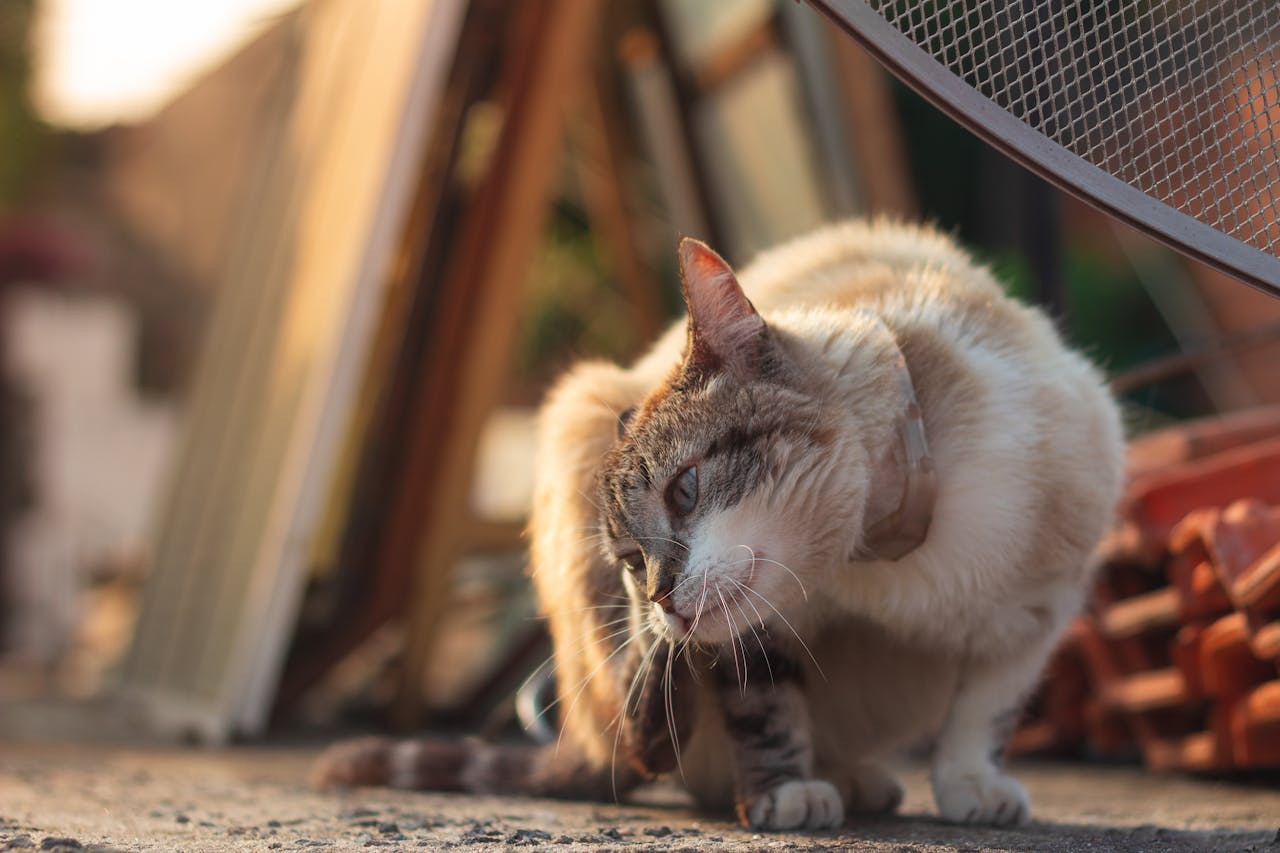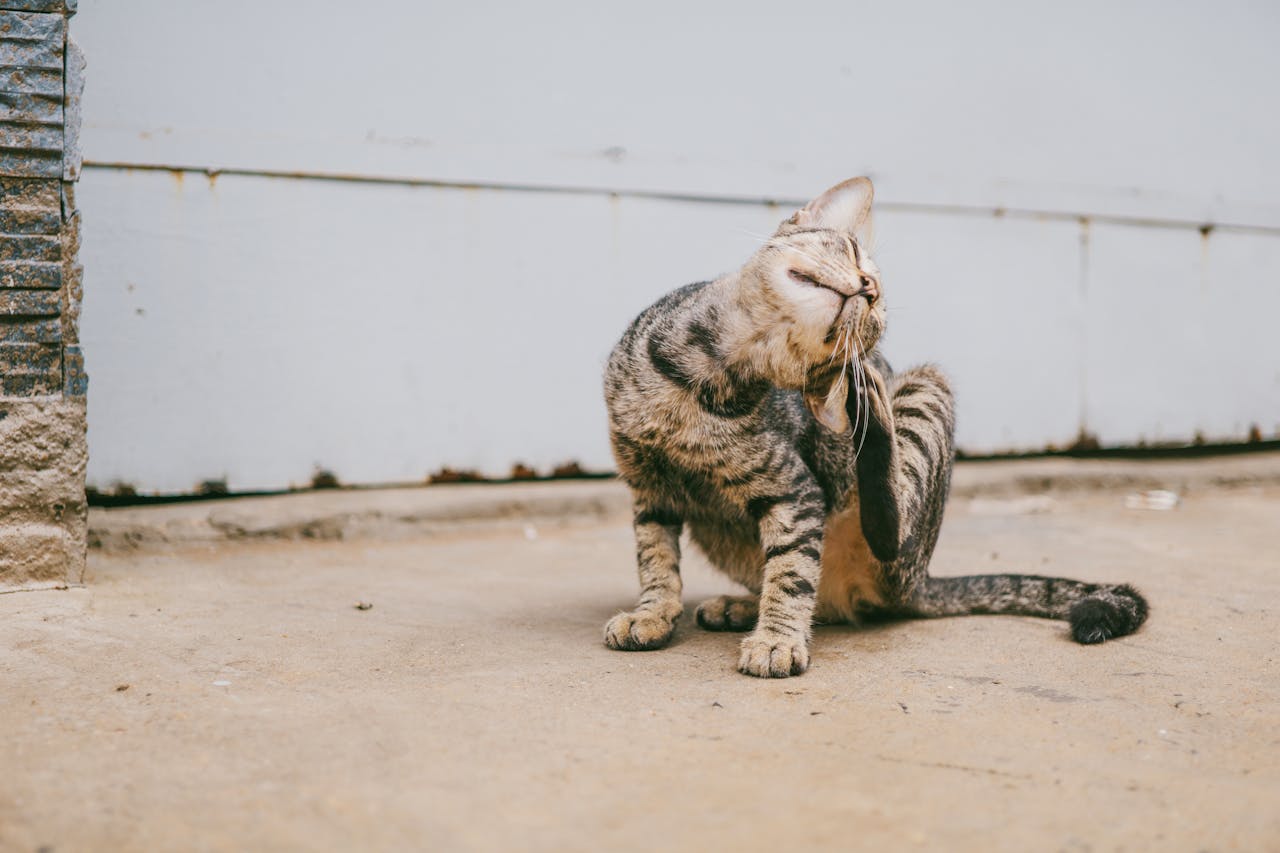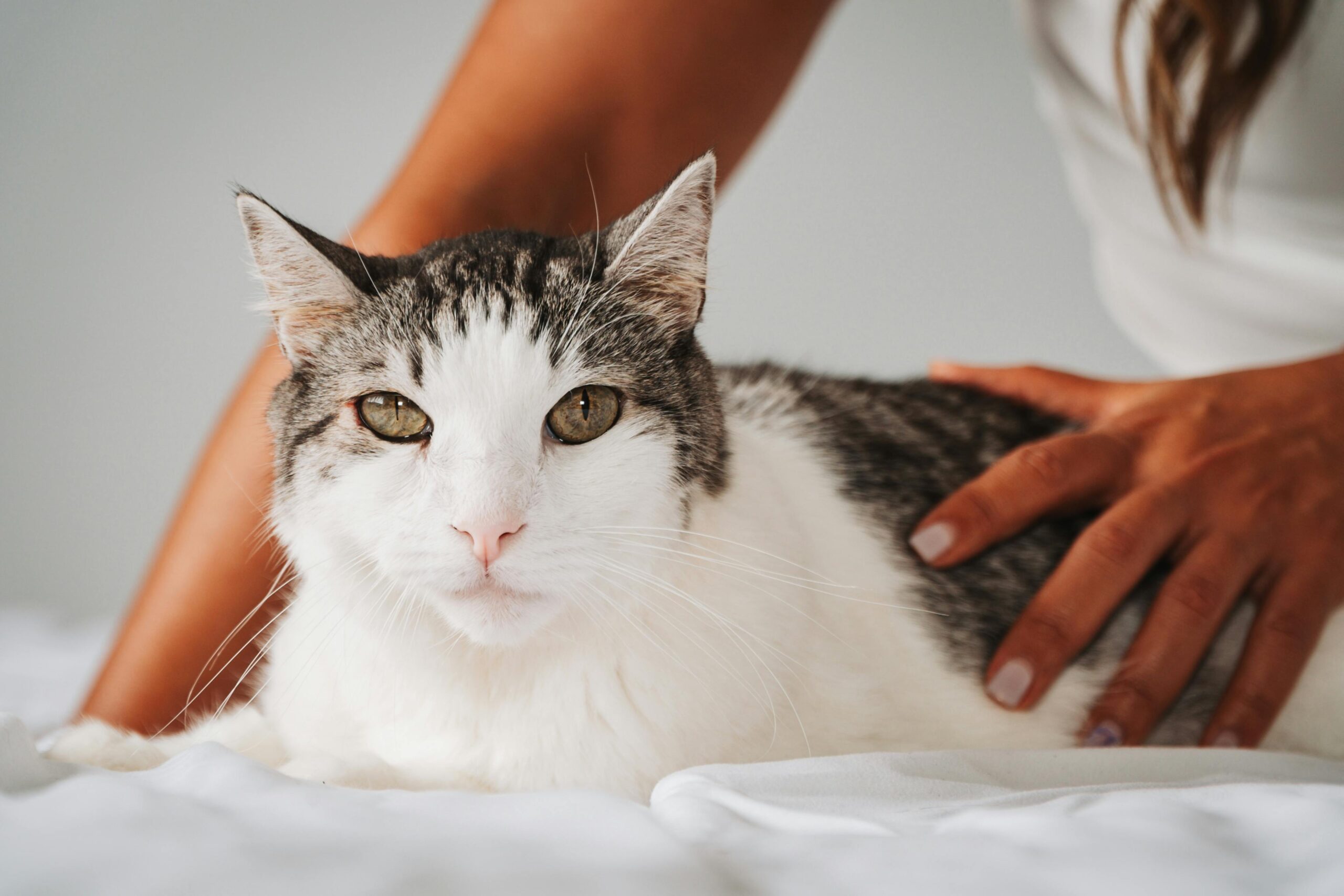If your cat suffers from itchy skin, you may be looking for a home remedy to help. In my previous article, we discussed a reader’s question about her cat scratching itself raw. We covered the six most common causes of itching in cats, and some ways to rid your cat of fleas at home. In this article, I’ll tell you about several safe remedies you can try at home to soothe itchy cats.
7 Home Remedies to Soothe Itchy Cat Skin
There are several safe remedies you can try at home when a cat has been itching:
- Essential Fatty Acids
- Coconut Oil
- Aloe Vera
- Colloidal Oatmeal
- Antihistamines
- Epsom Salts
- Make Changes Around the House
Caution: Please consult your vet before trying any home remedies on your cat.
1. Essential Fatty Acids
Especially if your cat is on a commercial diet instead of eating whole food, she may be deficient in fatty acids. In one study, cats with itching and skin lesions (miliary dermatitis) were tested, and many had fatty acid abnormalities; the majority responded to fatty acid supplementation. (2) You can buy fish oil made from fatty fish that will supply enough Omega 3 fatty acids to help, but the best thing is to give whole fish as part of her diet. You can use tuna, sardines, or fresh fish like mackerel.
2. Coconut Oil
If you’re wondering “What can I give a cat for itchy skin?”, consider coconut oil. Research shows it to be safe and effective and will clear up most cases of dry skin and some small sores. There are no contraindications for coconut oil, so as long as you are using less than a teaspoon or so on the skin, you can rub it on any sore spots once a day. If your cat licks it off, which he or she will, it will improve the skin quality.
3. Aloe Vera
The gel from this plant is a good alternative to using cortisone cream for miliary dermatitis secondary to scratching. If you have an aloe plant, just cut off a leaf and rub the gel on the inflamed area of her skin. Aloe, unlike coconut oil, is mildly toxic if any of the latex from the edges of the plant is mixed in with the gel, so if coconut oil is working, you should stick with that since cats will often lick it off when you are not looking. For that reason, aloe vera is a home remedy worth trying if your cat is scratching its neck raw.
4. Colloidal Oatmeal
Some veterinarians will recommend using this as a shampoo, but most cats really hate going through that process. It is easy to make dry shampoo at home for an effective cat itchy skin home remedy. Just grind up about half a cup of stone-ground oatmeal in the blender and rub it on the cat’s skin dry, without bathing. It is not a cure if your cat has fleas or allergies but should help your pet feel better. Try this remedy for dry skin on the cat’s lower back.
5. Antihistamines
Several over-the-counter antihistamines are effective and safe for cats and much more useful than for dogs with allergies. They are not going to help if your cat is itching and losing hair because of fleas. But, in studies, about 67% of cats had good or partial responses to antihistamines. If your cat itches only sporadically and you do not want to use any of the medications with more side effects (like steroids), they are a good option.
6. Epsom Salts
This option is effective but only practical if you decide to bathe your cat. The other solutions, like providing fish oil, are often more manageable for daily care.
7. Make Changes Around the House
If you have taken care of any potential flea problem, but your cat is still itching, you can try environmental changes to lessen the chances of inhalant allergies. Vacuuming more frequently, replacing the HVAC filters, and ridding your house plants (mold) may help. Some cats will need allergy testing and injections, but this is a good place to start at home to decrease the itching.

What I Don’t Recommend Using for Itchy Cat Skin
- Cortisone Cream Concerns: I do not recommend cortisone cream since cats will lick it off and end up with loose stools and other gastrointestinal problems. The issues they can develop could be more severe than the skin infection you are treating with cortisone cream.
- Homeopathic Remedies: None of the homeopathic remedies that claim to help itchy cats are effective in any way. Your pruritic cat will benefit much more from coconut oil, flea prevention, and a healthy diet with plenty of essential fatty acids.
Consult a Veterinarian for Miliary Dermatitis
If your cat is still itching despite being kept inside on flea control and the other remedies suggested here, you may be dealing with itching secondary to a more serious disease like eosinophilic granuloma complex. Some cases of inhalant allergies can also lead to severe skin infections. Your cat will need to see a veterinarian and may need to be treated with antibiotics, cyclosporine, or steroids.
Final Thoughts: Giving a Cat With Itchy Skin a Home Remedy
An itchy cat is not an emergency, but the sooner you get it seen, the quicker your pet will feel better. Try the home treatments first, but if you do not see any response in a few weeks, please consult your local veterinarian.
Sources:
- (1) Ravens PA, Xu BJ, Vogelnest LJ. Feline atopic dermatitis: a retrospective study of 45 cases (2001-2012). VetDermatol. 2014 Apr;25(2):95-102, e27-8. doi: 10.1111/vde.12109. Epub 2014 Mar 5. PMID: 24597491. https://pubmed.ncbi.nlm.nih.gov/24597491/
- (2) Harvey RG. Management of feline miliary dermatitis by supplementing the diet with essential fatty acids. Vet Rec. 1991 Apr 6;128(14):326-9. doi: 10.1136/vr.128.14.326. PMID: 2063524. https://pubmed.ncbi.nlm.nih.gov/2063524/




